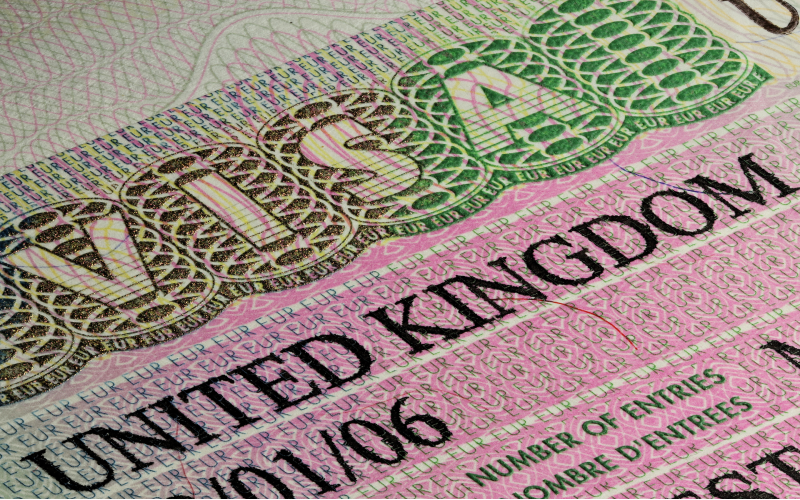
When embarking on making a UK visa application, you may wonder whether it is worth seeking immigration advice. The application process can appear deceptively simple; most applications are made directly online and guidance around the requirements is available on the UK Government website.
However, as anyone who has had an application for a UK visa refused will know, there are many hidden pitfalls within the immigration system. Navigating these pitfalls is difficult, especially if your situation is complex. Moreover, in situations where the Home Office has made a mistake or where there is a delay, advocating for yourself can be extremely stressful, and it can be difficult to know where to begin. This is why it is a good idea to seek immigration advice at the outset of your immigration journey.
In this blog post we examine some of the most common problems experienced by individuals who do not seek immigration advice, and set out five reasons why you should consider speaking to an immigration lawyer.
1. Submitting the Incorrect Visa application
One risk for UK visa applicants is making the wrong type of application. The UK immigration system includes many different types of visas, many of which apply to similar factual circumstances.
A good example of this is the distinction between a fiancé(e) visa and a marriage visit visa. If you hold a fiancé(e) visa, you are entitled to stay in the UK for six months in order to get married and, once you are married, you can apply for a spouse visa in order to remain in the UK permanently. With a marriage visit visa, on the other hand, you are merely entitled to enter the to get married, after which you must leave the country again. Other examples include an applicant who submitted an application for a partner visa instead of a skilled worker dependant visa leading to a refusal and the applicant overstaying. Another applicant accidently submitted an Indefinite Leave to Remain (ILR) application based on her private life rather than a Skilled Worker ILR application. She had to vary her application which was expensive and stressful - not to mention time consuming!
If you apply under the wrong heading, it is likely that your visa will be refused. This means that you will forfeit the visa fee paid when you made the application, and will have to make a new application using the correct form and pay another application fee. A past refusal can also have serious consequences for future immigration applications. You will have to declare any previous refusals when making subsequent applications, and you will need to explain the circumstances around the refusal as part of a new application.
Seeking the advice of an immigration lawyer means you can ensure that you submit the correct application, avoiding the potentially serious consequences of submitting the wrong form.
2. Location
Another sometimes confusing distinction made within the UK immigration system is between in-country and out-of-country applications. Depending on the type of application you are making, and your current immigration status in the UK (if any), you may be able to apply from within the UK. However, in other situations, you will have to apply from your home country. ‘In-country’ and ‘out-of-country’ applications are not only made from different locations, but also involve different forms on the Home Office website, and different procedures for providing your biometric data.
For instance, if you are currently in the UK and plan to apply for a partner visa, whether you have to leave the country to apply will depend on your current immigration permission. If you are here as a visitor, for example, you will need to return to your home country and apply for ‘Entry Clearance’ to return to the UK to live here permanently. If you have longer-term immigration permission, such as a Skilled Worker visa, you can apply from within the UK to ‘switch’ into the partner route. This would be an application for ‘Leave to Remain’ as a partner. Although both scenarios involve a first application for a partner visa, your particular circumstances will dictate where you must apply from and the type of application to make.
Similarly, if you are applying for a Skilled Worker visa, you cannot apply from within the UK if you are here as a visitor, short-term student, parent of a child student, seasonal worker, domestic worker, or someone who was granted permission outside the Immigration Rules. Again, whether you are applying from inside or outside the UK will determine the type of permission you should apply for and the form which should be used.
Seeking immigration advice at the outset of your immigration journey means that you can ensure you meet all the requirements of your application in terms of where the application is made, and the type of application you submit.
3. Prevent avoidable refusals
After receiving a refusal, submitting a fresh application can often be the most effective route to obtaining a visa. This is because many refusals are entirely avoidable. One common pitfall for applicants who do not seek advice is a failure to submit sufficient evidence. The Home Office provides a list of documents which you must submit as part of your application. However, the documents listed usually represent a bare minimum which will allow the Home Office to consider your application, rather than the evidence needed to be successful. This is relevant, for example, where your application relies on your relationship with someone else, such as a partner visa. For these applications, it is important to consider how best to prove your relationship, and this may include documents not mentioned on the Home Office’s document list.
Another issue some applicants experience is the Home Office requesting documents which are not required by the Immigration Rules. For example, they may ask for proof of your relationship even if you are making an application which does not rely on your relationship to your partner. This can make it even more difficult for applicants to ensure they provide the correct evidence.
Immigration solicitors deal with the complex guidance provided by the Home Office to its caseworkers, as well as the Immigration Rules, application forms and document lists on a daily basis, allowing them to help you prepare the best application possible and deal with any unexpected requests for evidence.
4. Avoid and mitigate delays
If you do not submit sufficient evidence, or the information provided with your application is unclear, the Home Office may take longer to consider your application. It is likely that they will write to you requesting further documents or explanation. This is significantly more likely if you have prepared your application alone, without the advice of an immigration solicitor.
Moreover, Home Office requests for further information can sometimes seem vague or unclear, especially to those who do not have experience dealing with the Home Office on a regular basis. An immigration lawyer can help you understand what went wrong with your initial application and help put things right, so that you receive a decision as quickly as possible following the delay.
5. Understand how to achieve your long term immigration goals
Information about the requirements for different types of visa is relatively easy to access, and some people find that they can develop a good understanding of the requirements for their own particular situation without speaking to a lawyer. However, applicants often find it more difficult to make long term plans to meet their immigration goals. The UK immigration system is complex, and contains within it a number of different ‘routes’ to staying in the UK indefinitely (Indefinite Leave to Remain) or obtaining British citizenship. Some visas, such as the Youth Mobility Scheme visa, do not lead to settlement at all, while others lead to settlement on different timescales.
Speaking to an immigration lawyer when making your initial application means you may be able to avoid spending time in the UK without accruing time towards an entitlement to Indefinite Leave to Remain. An immigration lawyer can also advise you of the fastest route to settlement or citizenship for your circumstances.
For advice about UK Immigration contact our specialist Immigration team on 03330 430350.

